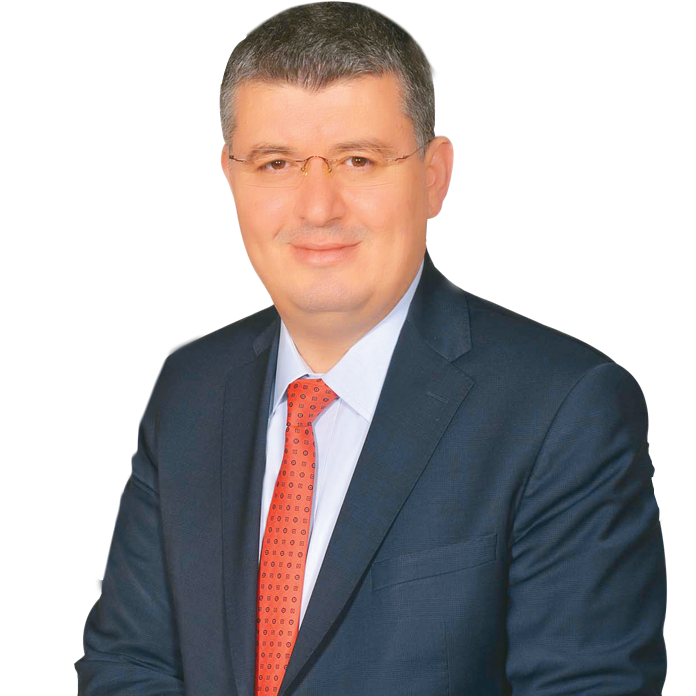An important foreign policy development that took place last week was most certainly the attitude adopted and the decisions taken at the European Union Leaders’ Summit in relation to Turkey. Though certain concerns regarding the superiority and basic rights with respect to Turkey were mentioned in the summit declaration, the signals of a return to a “positive agenda” with Turkey is significant, especially when compared to the atmosphere in the two previous summits.
Based on this, the statement in the declaration that “The EU is ready to engage with Turkey in a gradual, proportional and reversible manner” must be highlighted.
As tensions mounted in the East Mediterranean tensions last summer, Europe sanctioning Turkey was in question with France’s pressures and Greece’s provocations at the leaders’ summit held in early October and in December.
However, the sanction option has been shelved now, with a return to debates that can be negotiated in more “calm waters,” such as the renewal of the refugee deal made on March 18, 2016, paving the way for visa-free travel in Europe for Turkish citizens, and the update of the Customs Union agreement.
German Chancellor Angela Merkel, who was more accepting of Syrian refugees in 2016 compared to other European countries, soon after became the target of “attacks” in domestic policy. Merkel found that the way to overcome this dilemma was to strike a migration deal with Turkey. As stated by a Turkish official, who was deputy president for the Justice and Development Party (AK Party) government back then, Merkel made consecutive visits to Turkey in a “frenzy of panic.”
(Though, according to WikiLeaks documents, American diplomats referred to Merkel as “Teflon,” in the sense that she does not get affected by and is thick-skinned regarding comments about herself.)
At the end of those consecutive visits, the deal was signed, and migrations to Europe were reduced.
While Chancellor Merkel’s Turkey labor in the last three months was not in person and face-to-face due to the coronavirus pandemic, it is not far from the intensity in 2016. Frequent meetings were held more than once in December, February and March. The latest of video conference meetings between Turkish President Recep Tayyip Erdoğan and Merkel took place shortly before the EU Leaders’ Summit. At the end of the day, Ankara expressed “appreciation” of these meetings with Merkel.
Following the latest meeting held last week Tuesday, Anadolu Agency reported the following:
“In his meeting with German Chancellor Angela Merkel, Turkish President Recep Tayyip Erdoğan stated that they saw the positive reflections of promoting dialogue in Turkey-EU relations, and that Merkel’s personal contribution plays an important role in the development of this atmosphere.”
Considering Erdoğan’s critical position against Merkel time and again, his emphasis following this meeting on “[her] personal contribution to promoting dialogue in Turkey-EU relations” was striking.
While emphasizing Merkel’s personal contribution, two matters should be highlighted:
1- Merkel’s attitude during the East Mediterranean tensions that escalated last summer,
2-In addition to the East Mediterranean, matters such as the renewal of the refugee deal, updating the Customs Union, granting Turkish Citizens visa-free travel rights to Europe.
In the atmosphere last summer in which Greece played the role of Europe’s spoiled child with its “maximalist” demands regarding the East Mediterranean, and with France provoking this crisis by acting like Europe’s security patrol, Merkel was the leader who took a constructive role once again, disturbed by France and Greece’s attitude on behalf of Germany, and disassociated herself from the position these two countries had adopted in her role as “mediator.”
Joe Biden, who promised to bring America back to the international domain, winning the U.S. presidential elections in November 2020 instead of Donald Trump, who wanted to bring America to America, was to Germany’s advantage. Those who have closely followed developments can easily associate the sudden brake in France’s “aggressive” discourse with the results of the U.S. elections.
As Ankara observed this disturbance back in summer, in other words, because it realized Germany was perturbed by the cooperation between France and Greece, it provided sufficient support to Merkel’s mission to “mediate.” The current situation is also a result of shuttle diplomacy, which has been in play since then.




















